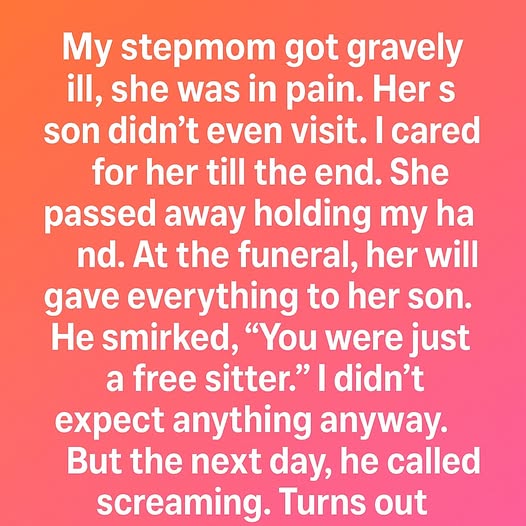The day after the funeral, I expected nothing more than silence—a quiet house, a heavy heart, and the slow return to routine. Instead, my phone rang before sunrise. On the other end was her son, his voice sharp and shaking. He had been sorting through the last of his mother’s belongings when he found a sealed envelope tucked inside an old wooden box.
It wasn’t addressed to him. It was addressed to me. Inside, she thanked me for the patience, calm, and steady care I gave her during the months when she felt the most fragile. She admitted she couldn’t change her will without stirring conflict, but she wanted me to know that my presence had meant more to her than anything material she could have offered. Her son wasn’t angry about the letter itself.
What unsettled him were the papers stored alongside it—unfinished trust documents, handwritten notes, and photos that revealed she had once planned to create something meaningful for him, only to abandon the idea. As he read her words of regret, he realized how deeply she wished their relationship had been different. For him, the discovery wasn’t about money. It was a confrontation with the distance he hadn’t wanted to acknowledge. I listened without interrupting.
When he finally stopped speaking, I reminded him that his mother never intended the letter to create tension. It wasn’t a final judgment. It was simply gratitude expressed in the way she knew best. There was nothing left to divide, argue over, or question. Only the truth of a woman who wanted peace in her final days. In the end, she left both of us with something far more valuable than possessions: perspective. She taught me that small acts of kindness are never wasted. And she reminded her son that time is fragile, relationships need tending, and some lessons arrive only when we’re ready to hear them.
